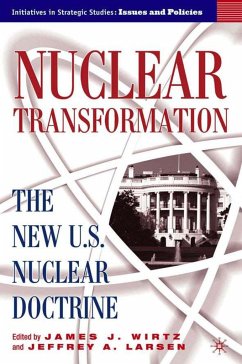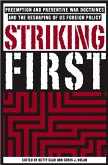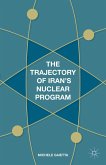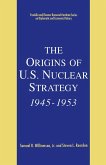As part of its general rethinking of America's global strategy, the Bush Administration initiated a re-examination of America's nuclear doctrine that has generated considerable controversy with its focus on maintaining a reliance on nuclear weapons and potentially increasing willingness to use them. Here a group of leading strategic analysts examine the background to the re-evaluation, issues of implementation and potential implications internationally.
Hinweis: Dieser Artikel kann nur an eine deutsche Lieferadresse ausgeliefert werden.
Hinweis: Dieser Artikel kann nur an eine deutsche Lieferadresse ausgeliefert werden.
'This compendium of expertise has no equal and will readily find its utility on student reading lists and the shelves of practitioners, commentators and critics'. - Glen M. Segell, Institute of Security Policy, UK
'This volume...highlights the path-breaking character of the NPR, without embracing it as a panacea or dismissing it as a dangerous folly. The result is a useful stimulus to renewed thinking about the requirements of nuclear security.' - Brad Roberts, Institute for Defense Analyses, USA
'This volume contains both sympathetic analyses and informed critiques of the Bush Administration's nuclear weapons policies. The authors pierce the fog of confusion that has surrounded nuclear doctrine and shed important new light on changes in U.S. strategic planning and its impact on other nations around the globe.' - Scott D. Sagan, Stanford University, USA
'This volume...highlights the path-breaking character of the NPR, without embracing it as a panacea or dismissing it as a dangerous folly. The result is a useful stimulus to renewed thinking about the requirements of nuclear security.' - Brad Roberts, Institute for Defense Analyses, USA
'This volume contains both sympathetic analyses and informed critiques of the Bush Administration's nuclear weapons policies. The authors pierce the fog of confusion that has surrounded nuclear doctrine and shed important new light on changes in U.S. strategic planning and its impact on other nations around the globe.' - Scott D. Sagan, Stanford University, USA








